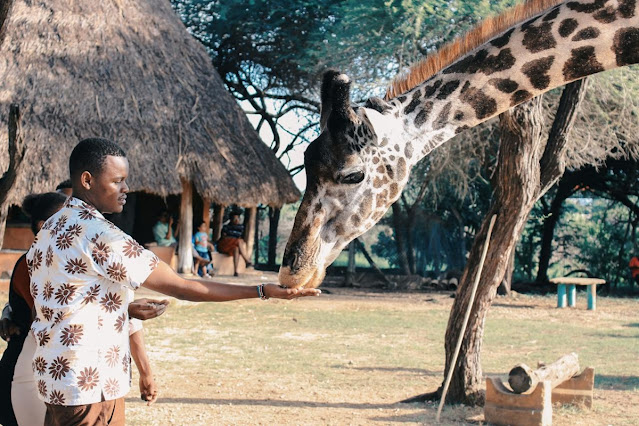Embarking on an African safari is a thrilling and life-changing experience that guarantees up-close encounters with magnificent wildlife and stunning landscapes. However, ensuring a seamless and unforgettable adventure requires careful preparation. Here is a comprehensive guide on how to best prepare for a safari expedition in Africa, covering everything from choosing the ideal destination to packing essentials.
Selecting the Perfect Destination
Africa offers a variety of safari destinations, each providing unique and enchanting wildlife experiences. Conducting thorough research and selecting a destination that resonates with your particular interests and expectations is essential for a successful safari experience.
Popular choices include the expansive plains of Tanzania's Serengeti, the iconic landscapes of Kenya's Maasai Mara, and the diverse ecosystems of South Africa's Kruger National Park. In planning your safari expedition, it is essential to seek the expertise of renowned African luxury safari specialists such as ROAR Africa and others for invaluable insights and personalized guidance.
Additionally, consider the time of year, as wildlife migration patterns and weather conditions can vary, ensuring that you optimize your chances of witnessing nature's spectacles during your safari adventure.
Obtaining Necessary Vaccinations and Medications
Before embarking on your safari, it is crucial to consult a healthcare professional to determine the specific vaccinations and medications required for the region you plan to visit. Essential vaccinations include protection against yellow fever, typhoid, and hepatitis A.
Additionally, anti-malarial medications may be prescribed based on the destination, ensuring a comprehensive health strategy tailored to the specific risks associated with the safari locale. This proactive approach to healthcare not only safeguards your well-being but also contributes to a more enjoyable and worry-free safari experience.
Packing Appropriately
Packing for a safari demands thoughtful consideration of the environment and activities involved. Opt for lightweight, neutral-colored clothing to blend into the surroundings and stay cool. Select moisture-wicking fabrics to combat potential perspiration.
Essential items include a wide-brimmed hat for sun protection, high-quality sunglasses to shield your eyes, sturdy walking shoes for comfort during explorations, binoculars for enhanced wildlife observation, and a reliable camera to capture those unforgettable moments in vivid detail. The carefully chosen goods will not only enhance your level of comfort but also boost the whole safari experience.
Choosing Accommodations Wisely
The right accommodation is paramount in enhancing your safari experience. Whether you lean towards a luxurious lodge or a tented camp, it is crucial to ensure that it aligns with both your comfort level and budget.
Many safari lodges and camps not only offer immersive experiences with comfortable amenities but also emphasize sustainable practices, providing you with an opportunity to connect intimately with nature while contributing to conservation efforts.
Selecting accommodations that prioritize eco-friendly initiatives can further enrich your safari adventure, fostering a sense of environmental responsibility and stewardship.
Understanding Wildlife Etiquette
Respecting wildlife and their habitat is crucial on a safari. Familiarize yourself with wildlife etiquette, including maintaining a safe distance, avoiding sudden movements, and following the guidance of experienced guides.
Responsible tourism ensures the conservation of these precious ecosystems by minimizing human impact and supporting initiatives that protect the natural balance of the environment.
By adhering to ethical practices, visitors contribute to the sustainability of these ecosystems, fostering a harmonious coexistence between humans and the remarkable wildlife that defines the African safari experience.
Learning About Local Cultures
Immerse yourself in the rich cultures of the regions you will be visiting. Acquire knowledge about the local customs, traditions, and etiquette as a means of demonstrating respect for the communities you come across.
Safari experiences often include interactions with indigenous tribes, providing an opportunity to gain insight into their way of life and contribute positively to local economies.
Engage in conversations, participate in cultural activities, and support local artisans, fostering a meaningful exchange that goes beyond the safari adventure, creating a positive impact on both visitors and the communities they visit.
Knowing Safari Rules and Regulations
Each safari destination may have specific rules to ensure the safety of visitors and wildlife. Listen attentively to your guides and adhere to provided guidelines, such as maintaining a safe distance from animals and avoiding disruptive behavior.
By doing so, not only do you enhance your safety, but you also play a vital role in the preservation of delicate ecosystems, contributing to the overall sustainability and protection of these remarkable natural environments.
Conclusion
A successful and enjoyable safari excursion in Africa requires meticulous planning. Through careful selection of the ideal destination, thoughtful packing, and a respectful approach to local cultures and wildlife, you can guarantee that your safari adventure evolves into a unique and unforgettable experience, brimming with awe-inspiring moments and enduring memories.








No comments
Post a Comment